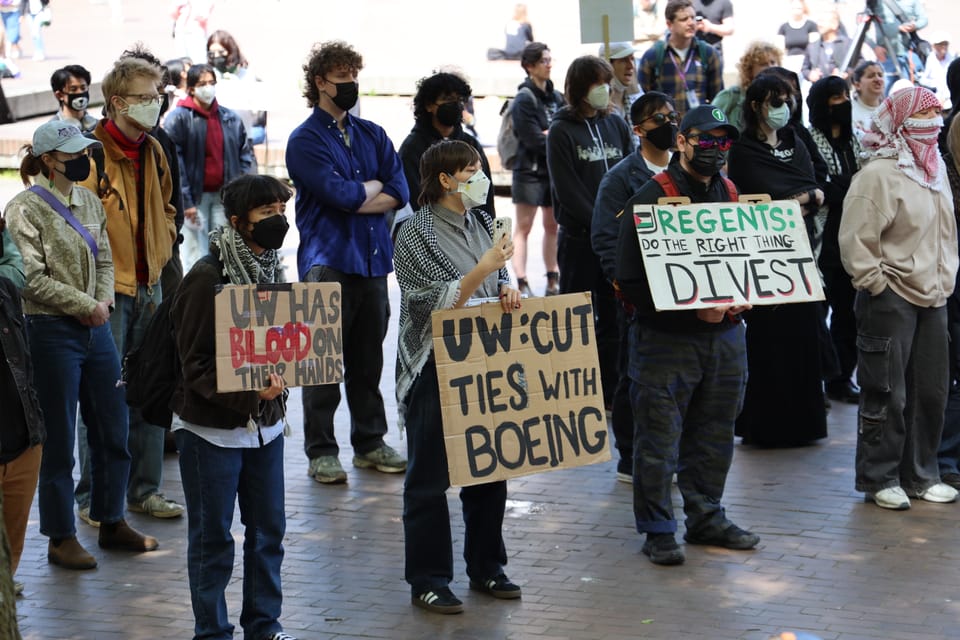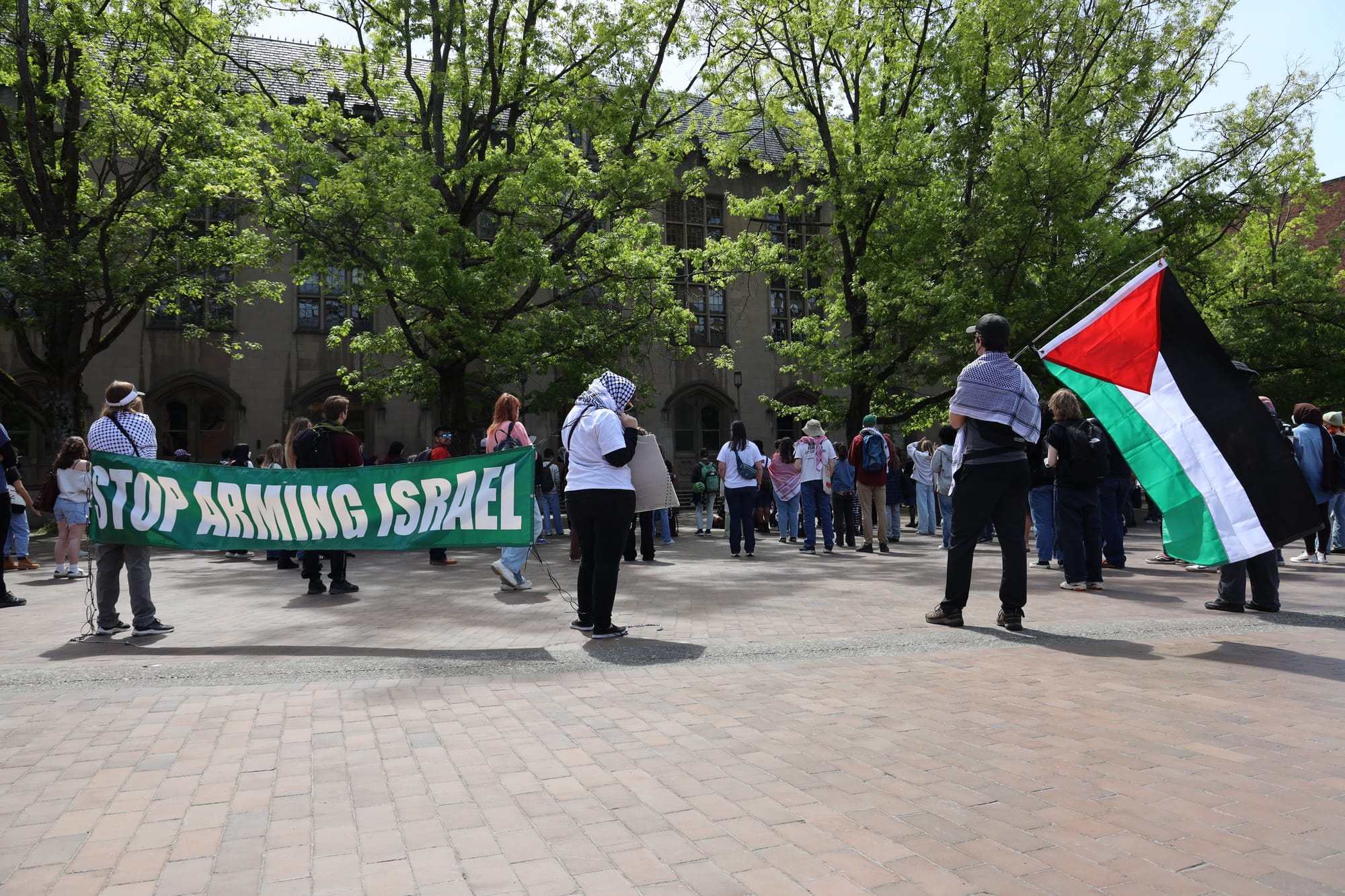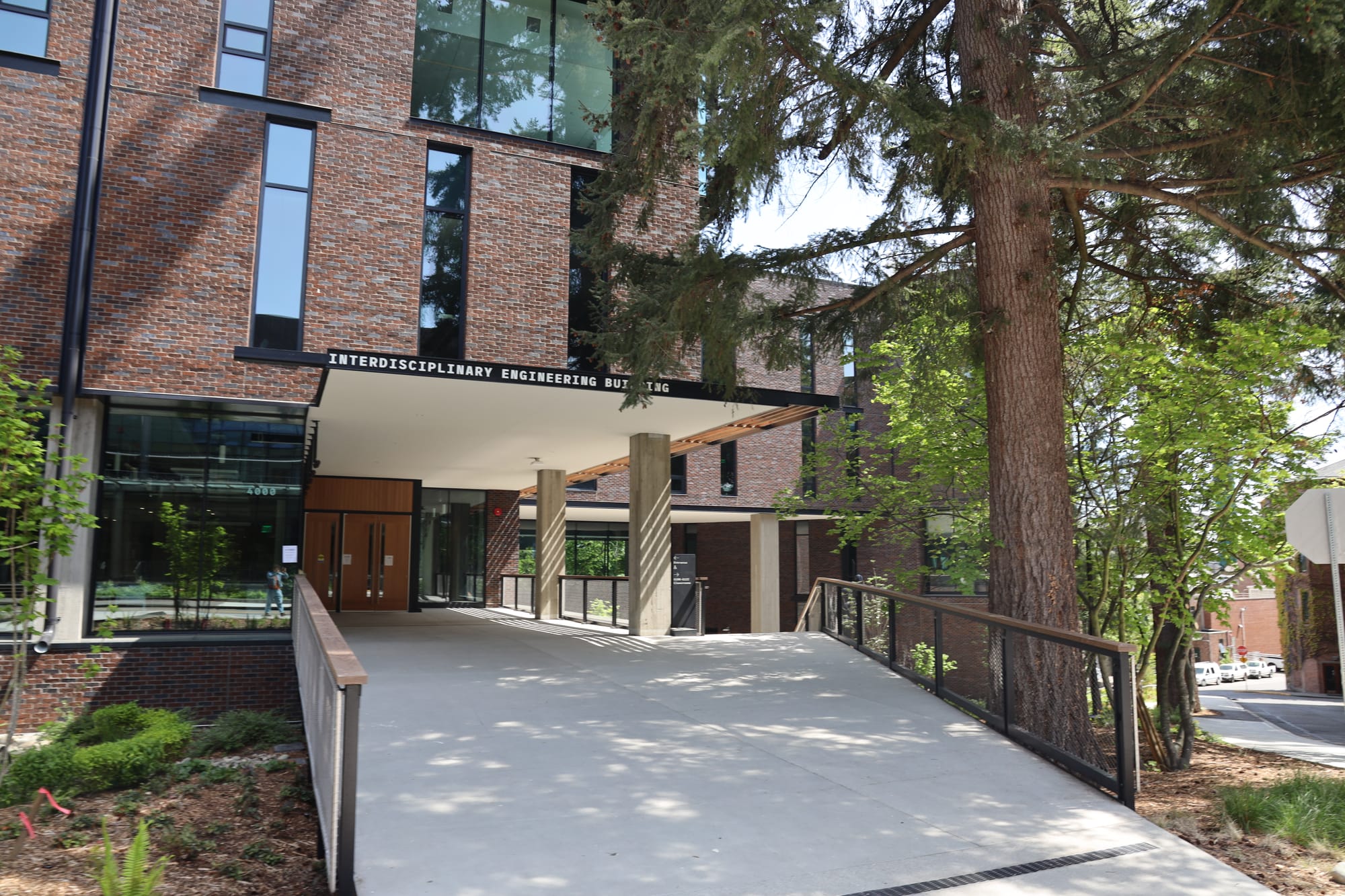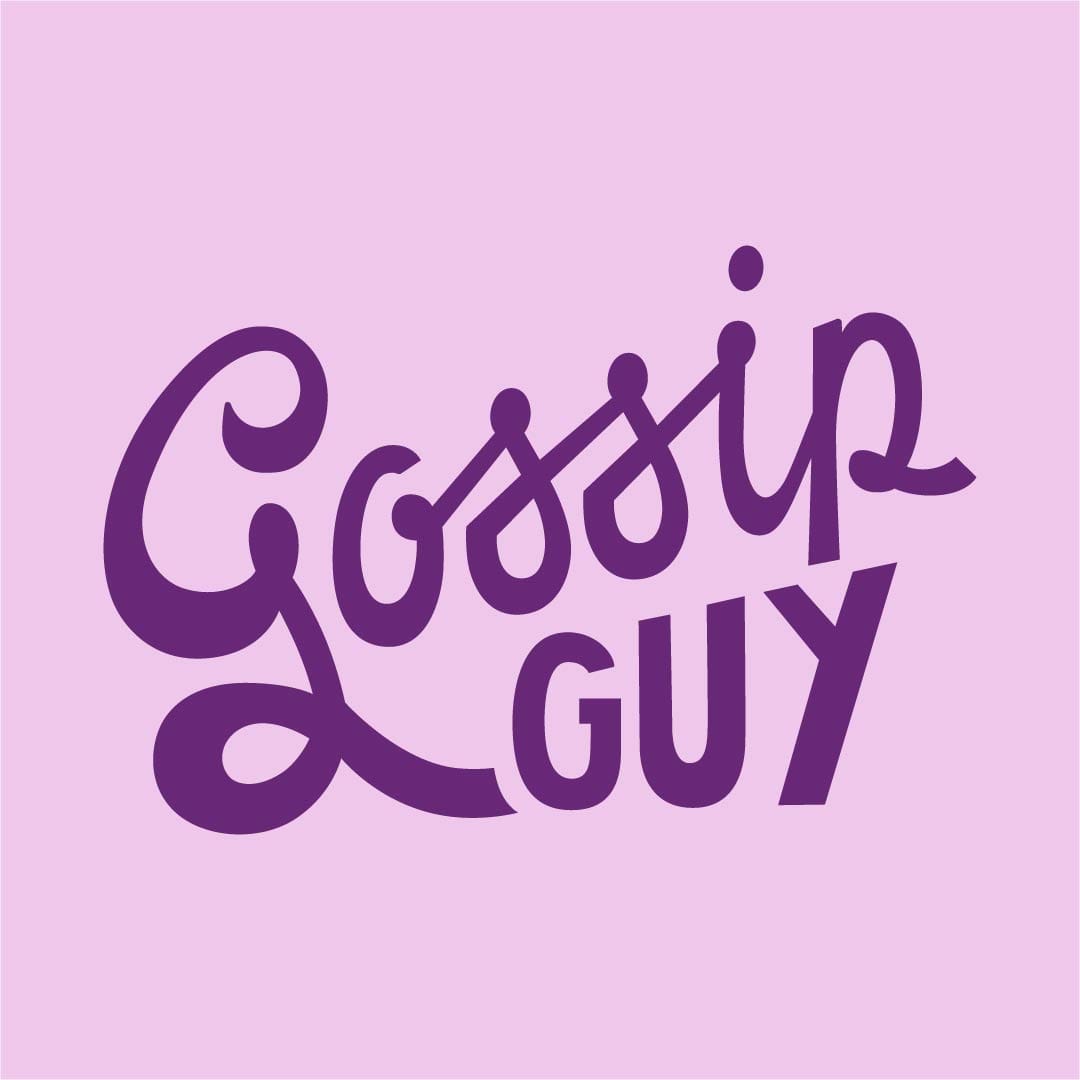UW calls the cops on student protesters who demanded an end to ties with Boeing

This article was written in collaboration with Real Change news. You can find it in the paper’s May 14 issue.
A little before 5 p.m. on May 5, dozens of University of Washington (UW) students and their allies entered and took over the college’s new Interdisciplinary Engineering Building (IEB), setting up a protest occupation. They hung signs calling for solidarity with Palestine, including a large canvas banner taped to a second-floor window proclaiming a new name for the IEB: the Sha'aban al-Dalou Building.
Al-Dalou was a 19-year-old Palestinian software engineering student. On Oct. 14, 2024, he was incinerated by an Israeli bomb. The brutal manner of his death evoked outrage and sorrow from many around the world
The group Students United for Palestinian Equality and Return (SUPER) organized the action, along with other grassroots activists, to highlight — and ultimately try to end — UW’s connections to Boeing. The aerospace company contributed $10 million to the construction of the IEB — nearly a tenth of the total $102 million cost. The second floor of the building contains the Boeing AI Institute, dedicated to education about advanced machine-learning algorithms. Boeing is the fifth-largest arms manufacturer in the world, supplying Israel with fighter planes, military helicopters, bombs and munition targeting kits.
The response from the university was swift and uncompromising. The UW Police Department (UWPD) called in support from the Seattle Police Department and Washington State Patrol to forcibly disperse the demonstration and threaten participants with arrest if they refused to leave. By 11 p.m., cops had secured a perimeter around the building. Soon after, they entered and arrested 31 protesters. Various media outlets have reported different numbers of arrestees, but the King County Prosecuting Attorney (KCPAO) confirmed that a total of 31 participants were jailed overnight at the King County Correctional Facility and the Maleng Regional Justice Center.
Although the protesters were released from detention by the following afternoon, many students faced further sanctions from university administrators. On May 7, UW suspended 21 students for alleged participation in the IEB occupation. Several protesters also reported injuries caused by police officers during the arrest, including nerve damage to the wrists due to prolonged handcuffing and trauma to the head.
“We feel that it would be the most egregious thing to allow a Boeing-funded facility like the IEB to be allowed to function how it is intended to,” said Noah Weight, a member of SUPER.
On May 6, the Trump administration announced a review into “Anti-Semitic Activity” at UW in response to the protest, echoing similar actions taken in response to pro-Palestine student activism at Columbia and Harvard universities. In an all-institution email sent the same day, UW President Ana Mari Cauce echoed the federal government’s rhetoric, condemning the protest as “dangerous, violent and illegal.”
The IEB occupation — and the harsh crackdown on it by both administrators and police — has major implications for Palestine solidarity activism at UW and across the U.S. It is also an indicator of how far the political climate has shifted since last spring’s pro-Palestine student uprising, leading to changes among the attitudes of both protesters and university and government officials alike.
@guy.oron NEW: University of Washington Seattle students began an occupation of the Interdisciplinary Engineering Building (IEB), in protest of Israel’s War on Gaza, on May 5. The IEB was partially funded by Boeing, a top weapon supplier of Israel. Students United for Palestine Equality and Return (SUPER) are demanding UW cut ties with Boeing. #news #journalism #seattle #protest #gaza #palestine #israel #boeing #uw #universityofwashington ♬ original sound - guy.oron
Timeline of campus activism
Since the October 7, 2023, attack by Palestinian military groups on Israel, SUPER and other student groups have been very active on campus, organizing numerous demonstrations and other actions against Israel’s 19-month-long war in Gaza. On Dec. 7, 2023, students held a sit-in at Gerberding Hall, the university administration building, for about seven hours. At the time, several protesters said they were shoved and grabbed by UWPD officers. Ultimately, 36 students received trespass notices but were not charged.
On April 4, 2024, SUPER helped lead an overnight occupation of the UW Husky Union Building to protest the university’s $5.7 billion consolidated endowment fund’s investments in weapons corporations . Following the action, UW administrators claimed protesters had caused property damage. SUPER was suspended as a registered student organization. This has resulted in the group being unable to reserve UW-owned venues for events such as its annual cultural festival.
During the pro-Palestine student protests of spring 2024, about 3,100 students were arrested and more than 300 encampments were set up on college campuses across the country. SUPER joined a coalition of student and community groups in launching a protest encampment on May 1 of that year. The “Liberated Zone” protest grew rapidly to more than 100 tents, occupying much of UW’s Quad. No arrests were reported at UW; the encampment was disbanded without incident on May 19, 2024 following an agreement between students and the university administration.
One of the main stipulations of that agreement was a pledge by Cauce to aid in establishing an advisory committee to investigate socially responsible investments by the endowment. While this sounded like a genuine attempt at divestment, the promise ended up being little more than bureaucratic hand waving in practice.
In September 2024, the UW Board of Regents — the body actually in charge of overseeing the endowment — delayed consideration of the advisory committee. In March 2025, the board overwhelmingly voted to reject the proposal.
The idea of the IEB occupation was born from the context of the failed efforts to get the UW administration to divest from Israel and weapons corporations. In a statement on its blog, SUPER outlined the occupation’s three demands: an end to Boeing’s involvement in the IEB, termination of any broader partnerships between Boeing and UW and a halt to a “targeted assault” on “pro-Palestine activism and activists” at the university.
According to Noah Weight, a member of SUPER, student activists wanted to focus on a more narrow and direct link between the university and the war in Gaza.
“The issue is that divestment from Israeli-linked companies would not touch the relationship with Boeing, because Boeing invests in the University of Washington; the University of Washington does not invest in Boeing,” Weight said. “For us, as we’ve looked and seen Apache helicopters made by Boeing, Hellfire missiles made by Boeing massacring and destroying Palestinians and their land — we feel that it would be the most egregious thing to allow a Boeing-funded facility like the IEB to be allowed to function how it is intended to function on the University of Washington campus.”
Last year, Cauce affirmed UW’s close ties with Boeing, rejecting calls to wind down the partnership.
The tactics used by SUPER were also more disruptive than in last year’s encampment; unlike the occupation of a grassy plaza, the IEB is an active site of instruction and has advanced lab equipment used by students and researchers. This can perhaps be explained by the deteriorating conditions in Gaza, with the UN warning of a critical risk of famine. Student protesters’ escalation mirrored the urgent situation on the ground.

A hostile political climate
In the first few hours of the IEB occupation, it appeared student protesters had expected a longer sit-in, potentially lasting several days. The mobilization of police forces, as well as the activation of right-wing media outlets that portrayed the protest in a negative light, was significantly quicker than in past protests at UW.
The action had been organized under a media blackout to maintain an element of surprise, which dampened turnout by supporters. It also started late in the afternoon after a busy work day. Attendance both in and outside the building never grew to more than 75 protesters and observers, which made the job of clearing those inside easier.
Another factor contributing to UW’s rapid response may have been SUPER’s statements praising the October 7 attack. In the U.S. political context, that type of language is extremely controversial and could have contributed to a more negative reaction by administrators. In a May 8 email to Real Change, UW spokesperson Victor Balta wrote that the university considers support for the October 7 attack “antisemitic” because it was “the largest mass murder targeting Jewish people since the Holocaust.”
Several anti-Zionist Jewish scholars have criticized the use of the label of “antisemitism,” which originated in reference to European racism against Jews, in the context of Palestine. They argue that the conflation of violence against Israelis and violence against Jews is being used to justify Israel’s war efforts.
The Trump administration has overseen a crackdown on pro-Palestine student protests, starting with the high-profile arrest of Palestinian Columbia University graduate student Mahmoud Khalil by Immigration and Customs Enforcement on March 8.
UW is also facing significant pressure from the Trump administration amid the Department of Government Efficiency’s cuts to research and science funding. Opening an inquiry into alleged “Anti-Semitic Activity” could further push university officials to react in a tougher manner toward groups like SUPER. In fact, the Trump administration has already praised UW for “good first steps” in its response to the IEB occupation.

Swift repression by police and administration
According to the KCPAO, the 31 IEB protesters were arrested for criminal trespass in the first degree, a gross misdemeanor. No property crime charges have been referred to the prosecutor, which has not yet made a determination on whether to file charges.
Balta wrote that preliminary estimates of the property damage during the IEB occupation were $1 million. It is not clear where this figure is coming from, as the main reported damage was broken glass, rearranged furniture and a burnt dumpster.
According to Weight, the manner in which cops arrested and removed protesters from the IEB was violent.
“They gave a one-hour dispersal warning to those inside, then entered within 10 minutes, were immediately violent — grabbing people, throwing people downstairs, slamming people into the ground,” Weight said. “Several people have suffered head injuries. Several people went to the hospital for nerve damage from being handcuffed for hours or zip tied for hours. Most people had some form of abrasion or bruising. From the second the police entered the building, everyone inside was in serious physical danger.”
UW spokesperson Balta said that he was not aware of any protester injuries.
On May 8, more than 100 people rallied outside of Gerberding Hall to denounce the treatment of protesters by police and UW administrators. Participants said they remained undeterred by the repression and will continue to advocate for Palestinian liberation.
The IEB occupation garnered significant local and national media attention. However, it appears that SUPER’s demands are unlikely to be fulfilled for now, as Cauce promises to “not be intimidated” by the IEB occupation.
This story has been updated with edits for grammar and clarity.

Member discussion